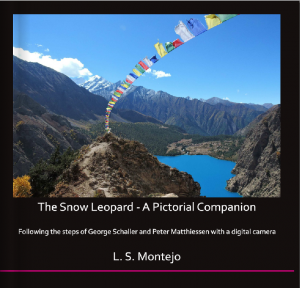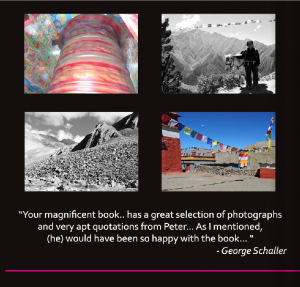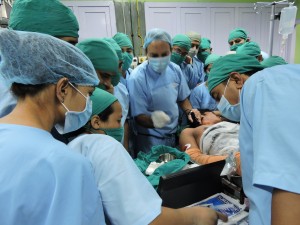DONATE
Your funds will go towards the delivery of five quality ultrasound systems for the country of Nepal (Kathmandu).
- A physician will travel to Kathmandu with five ultrasound devices and will provide assistance. Most caregivers in this country have never used let alone seen an ultrasound device. By providing ultrasound devices to the Kathmandu hospitals after the earthquake, doctors will be able to practice thousands of blocks and relieve pain.
Bir Hospital
Grande Hospital
KTM Medical College
Birendra Hospital
Om Hospital
OUR GIFT TO YOU
In return we will send you a copy of the beautiful 12×12 photographic book The Snow Leopard – A Pictorial Companion. This 120 page book contains beautiful photographs of the 250 mile trek George Schaller and Peter Matthiessen did in the early seventies in search of blue sheep and the snow leopard.


Our campaign goal: $59,000 

We suggest donations in the following way:
$10 – Moral support donation, in exchange for good karma. Thanks!
$30 – Digital copy of the book.
$60 – Copy of the book.
$100 – Autographed copy of the book.
$250 – Five signed copies of the book to share with your friends.
$500 – Five signed copies of the book, plus you will be thanked in the book.
$1000 – 20 copies of the book.
$5,000 – 50 copies of the book, plus the author will speak at your event on an agreed upon date and time.�
This amount will allows us to offer five ultrasound devices along with training in Nepal.
The Snow Leopard
The Himalayas have always seduced mountain climbers, philosophers, scientists, politicians, and the writer Peter Mattthiessen who went there not only to follow George Schaller and his quest for the snow leopard, but also in the more difficult journey of finding himself.
In 2014, the author of our pictorial book followed their steps in an effort to document what is often hard to visualize while one reads “The Snow Leopard”.
He endured cold and the difficulties of high altitude, but was able to beautifully document the land of Dolpo, this rarely visited part of the world.
The result is magical and it will no doubt inspire those who have read the book and have yearned to travel to this distant land.


